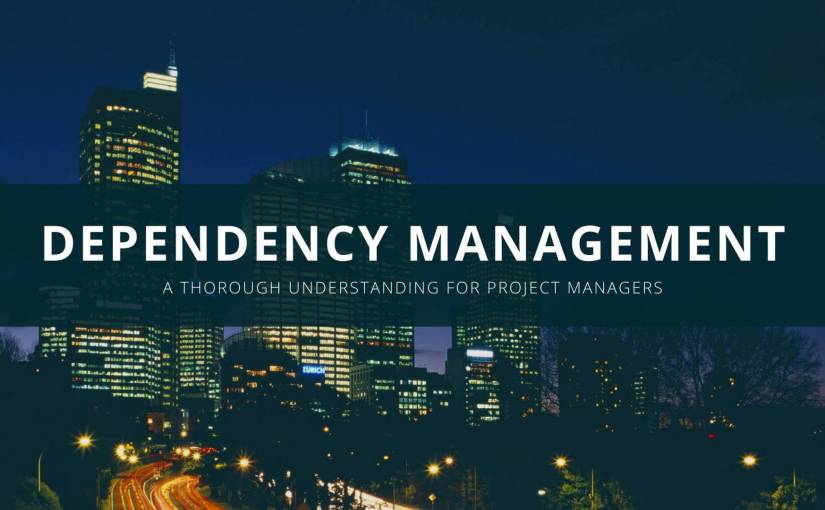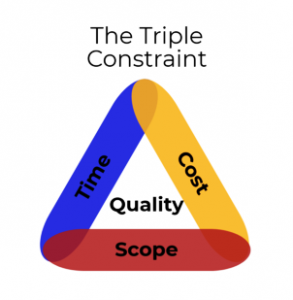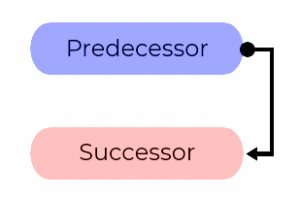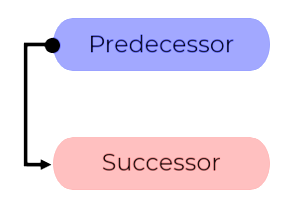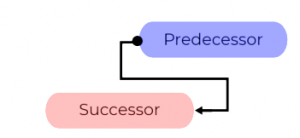Let’s envision a common morning routine that most people can relate to. Imagine that you have an important presentation early in the morning. You get up half an hour earlier than you are prone to. You get out of bed, yawning, and go straight to the shower. You come out and notice the day to be as beautiful as one would hope it to be at 8 am.
You go into the kitchen and brew yourself a cup of coffee. The oh-so-heavenly aroma is reassuring of a good start to the day. You get ready for the big day, call a cab, and leave for work.
Your Main Task for the Day is Getting to Work
Now let’s rewind. The main task here was to go to work. This means getting to your office is foremost dependent on you getting up. Now, sure you could have skipped one or two of the subtasks. However, the essence of understanding is that one task is dependent on the other. One task dependent on another is dependency management.
If we magnify it a bit further, for instance. Brewing a cup of coffee is dependent on you putting coffee beans and water into the coffee maker. Simple tasks as such are also dependent on an even simpler task.
Likewise, projects do not work through a vacuum and it is nearly impossible to find a task that is not dependent on one or more tasks except for the first one.
Whether the output of one task affects the initialization of the second task, or you might just have to wait for the resources to be assembled before setting up the task — understanding and pull through this is one of the most important assignments of a project manager.
When the beginning or completion of an activity, milestone, or task is dependent on the completion of another activity, milestone, or task, we call it a dependency.
In this article, our emphasis would be on the importance of dependency management and how project managers should walk through different categories and types of dependency rather than the project management tools to look out for.
Project Dependency
In project management, we need to manage and schedule the tasks while paying attention to their sequence and requirements to carry forward the project smoothly.
For instance, if task X needs to be completed to start task Y, we will say that task Y is dependent on the likes of task X. This is a simple example, although it can get complex in multipart projects with codependent tasks.
Some important terms that go along with dependencies in project management are explained below:
Constraints
In project management, constraints are as regular as a dependency and can be said to have a cause-effect relationship. These are the limitations that a project manager needs to abide by while managing a project.
Three main constraints that any project faces are the time, cost, and scope of the project. They are also known as the triple constraint.
Cost: Budgetary constraints of the project
Time: Projected timeframe for completion of the project
Scope: All tasks to be completed to complete the project
For successfully completing a project, the project manager must track its constraints and dependencies attentively and (re)allocate resources if and when needed.
Lead and Lag
Lag
Lag can be defined as the time duration whereby a said successor activity is needed to be delayed regarding the predecessor activity. Simply putting, it is the delay between two scheduled activities; for instance, if task A completes and there comes a delay before task B starts, it is called a lag.
Lead
Lead is a condition defined as the time duration whereby a said successor activity can be accelerated or advanced regarding the predecessor activity. In simpler terms, if the second activity is started whilst the first activity is still being run, it is called lead time. For instance, let’s assume that the time required to complete task F is 10 days, and it is 12 days for task G. On the 8th day of task F, we start task G; therefore, task G has a lead time of 2 days.
Critical Path
This series of continued activities that are chained in order to complete a project is called the critical path of the project. It is important to note that a delay in any task in this series can delay the entire project unless the gap is fixed through lead time.
Categories of Project Dependency
Logical or Causal dependencies are the inevitable dependencies, which means that they cannot be ignored. Consider baking a gooey brownies’ batch; you cannot start preparing the batter unless you have all the ingredients.
Resource-Based dependencies
They are instigated on account of the project constraints. For example, if two tasks for completion require a shared resource, then one task would have to depend on the other to use the same resource.
Preferential dependencies
They are the one sourced by convenience or best practices. Generally, preferential dependency only brings quality issues to the project, but they can be ignored to complete a project.
For example, contractors let the foundation of the roof soak in before laying tiles on.
Cross-Team Dependencies
These tend to occur when two or more teams are required to work to complete a project. In bigger organizations, this can pose a challenge.
External Dependencies
These are not in control of project managers as they are likely due to vendors or third parties for completion.
The following types will let you understand the relationship between dependencies:
Finish to Start (FtS) Dependency states that Task T cannot be started without the completion of Task S.
Finish to Finish (FtF) Dependency states that Task S can only be completed when Task T ends.
Start to Start (StS) Dependency states that Task T cannot be started unless Task S starts.
Start to Finish (StF) Dependency states that Task T has to start for Task S to be completed.
Dependency Management
A practice used to identify, resolve, and use the project’s dependencies in a programmed manner is called dependency management.
Importance of Dependency Management
If the project dependencies are not managed in the right way or in time, the entire project can lose its integrity.
For instance, what happens if you don’t allocate resources right away for the completion of a task that is delayed because its predecessor didn’t complete it on time?
As a good project manager, you have to be fully attentive to the time frame and dependency of each task to create a feasible time frame. Unlike popular opinion, dependencies are important, and they help you work out the right course of the tasks.
How to efficiently manage project dependencies
- Make sure that everyone on the team understands which dependencies and constraints are the most important.
- Understand all the plausible project dependencies and constraints to identify a critical path
- Prioritize the dependencies that have a major stake in the completion of the project.
- Formulate contingency plans to make the project stay on track even if something goes wrong.
- Managing a risk log can be helpful to cater to solutions for those risks.
